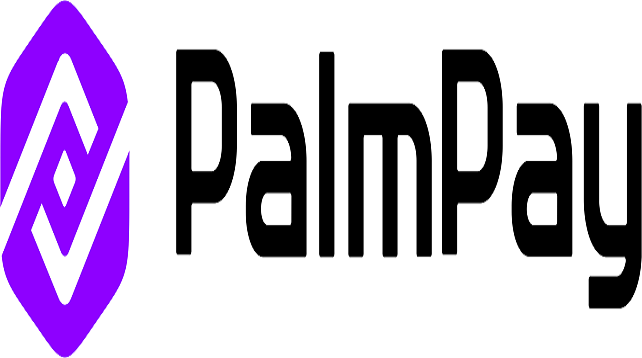E-Financial
Oradian Deploys Cloud Tech for Digital Rural Banking

Oradian, a financial inclusion company, is set to build its community of visionary microfinance institutions, microfinance banks and Cooperative Societies in West Africa. Through Oradian’s toolset, which includes its cloud-based core banking system (CBS) Instafin, financial institutions are enabled to grow and reach more clients with digital financial services.
The company’s mission – to boost financial inclusion by delivering the tools financial institutions need to reach more clients in rural communities – supports Nigeria’s goal to reach 80 percent financial inclusion by 2020 as stated by the Central Bank of Nigeria (CBN).
According to Onyeka Adibeli, Oradian Co-founder and Head of Implementation, “Oradian’s cloud-based CBS enables financial institutions to go digital. Paired with guidance and support from our in-market teams, we are enabling the successful digital transformation and implementation of global best practice for our community of financial institutions”.
To accelerate financial inclusion in Nigeria and to share best practice for going digital with cloud technology, Oradian will host a dinner event in Lagos as part of the Africa Banking and Finance Conference on April 10 2018.
The event is designed to bring leaders of financial institutions, regulatory groups, financial inclusion experts, the Central Bank and fintech providers together to build strategic partnerships that will boost financial inclusion in Nigeria and West Africa at large. The event will connect the private sector, public sector and financial services regulators.
“Strategic partnerships within the digital ecosystem are proving to be the most effective way to enable our customers to provide better service to their end-clients,” says Antonio Separovic, the Chief Executive Officer and Co-founder of Oradian.
Oradian is demonstrating the value of strategic public-private partnerships in Southeast Asia with the Asian Development Bank (ADB) and Cantilan Bank, one of the top rural banks in the Philippines. Backed by a $150,000 ADB grant, Cantilan Bank will use Oradian’s toolset to demonstrate how cloud technology can unlock financial opportunities by providing access to financial services for hard-to-reach individuals in rural areas.
Oradian’s toolset, including Instafin, delivers three key business benefits to financial institutions: improved efficiency with digital processes and operations, informed decision-making with real-time data and reporting, and growth without incremental cost. Oradian provides access to its toolset using a subscription model, eliminating financial barriers that prevent financial institutions from accessing leading technology.
Co-founders Separovic and Adibeli will lead Oradian’s dinner event in Lagos and they will be joined by Eric Elango, Oradian’s Business Development Manager, who specialises in working with financial institutions to align their business strategy with their technology strategy.
Together, Oradian will continue building strategic partnerships with key financial inclusion leaders and visionary financial institutions in West Africa to provide access to financial services to more clients and to fast-track CBN’s financial inclusion goal for 2020.
E-Financial
PalmPay Executes Nigeria’s First Live Transaction on the National Payment Stack

PalmPay, Nigeria’s leading digital banking platform, has once again demonstrated its leadership in driving the nation’s payment revolution. In a landmark development for Nigeria’s digital economy, PalmPay, in collaboration with Wema Bank, completed the first live transaction on the Nigeria Inter-bank Settlement System (NIBSS) National Payment Stack (NPS), a next-generation infrastructure designed to redefine how money moves across the country.

The first live transaction, which happened at exactly 11:56 am on Friday, November 7, 2025, marks a new era in Nigeria’s financial innovation journey and reinforces PalmPay’s role as a trusted pioneer in the payment ecosystem.
This achievement rides on the back of the brand’s growing reputation as a fintech innovator, following recent global recognitions as Financial Times Africa’s Fastest-Growing Companies 2025 and CNBC and Statista’s Top 300 Global Fintech Companies for two consecutive years (2024 and 2025) for its impact, scale, and commitment to inclusive growth across emerging markets.
A Milestone that Redefines the Future of Payments
The National Payment Stack (NPS), powered by NIBSS, builds on the success of the NIP infrastructure, introducing greater speed, interoperability and real-time settlement across the financial ecosystem. Designed to meet international standards, NPS enhances cross-border payment capabilities while introducing more advanced security features, including digital signatures and multi-factor authentication to safeguard users and institutions.
Beyond its technical advancements, the National Payment Stack (NPS) sets a new benchmark for Nigeria’s leadership in Africa’s finance landscape. Through the ISO 20022 global messaging standards, Nigeria is now positioned as a regional hub for seamless and secure cross-border transactions.
Commenting on the landmark achievement, the Managing Director/Chief Executive Officer of the NIBSS, Premier Oiwoh, said: “We commend PalmPay for this historic achievement as one of the key collaborators in executing the first successful transaction on the National Payment Stack (NPS). This milestone reflects our shared
commitment to advancing a faster, safer and more interoperable payment ecosystem for Nigeria. The NPS represents the next frontier of innovation designed to power inclusion, efficiency and growth across the financial industry. We look forward to more institutions coming on board as we collectively shape the future of payments in Nigeria and across Africa.”
Also speaking, Jaipei Yan, Group Chief Commercial Officer at PalmPay, stated, “This achievement is a win for Nigeria and Nigerians. PalmPay is all about providing smarter banking solutions. Since our launch six years ago, we have focused on bridging the gap between innovation and everyday financial inclusion. It was an absolute delight to work with NIBSS and other stakeholders on this remarkable milestone.”
By pioneering this milestone, PalmPay not only strengthens its credibility but also reinforces its alignment with the Central Bank of Nigeria’s drive toward a digital, connected economy. From ranking among the world’s leading fintech brands to executing Nigeria’s first live transaction on a national payment infrastructure, PalmPay is proving that innovation, when purpose-driven, can transform economies.
Looking ahead, PalmPay aims to accelerate its vision of a connected, digital, and financially inclusive Africa, combining global standards with local relevance to build technology that truly empowers people and businesses.
E-Financial
Senate Seeks Full Disclosure in Probes Stamp Duty Collections

Senate has requested the Central Bank of Nigeria (CBN) and the Federal Inland Revenue Services (FIRS) to provide detailed information on revenue generated from Stamp Duty payments.

Sen. Aliyu Wadada, chairman of the Senate Committee on Public Accounts, made this known while briefing newsmen in Abuja on Thursday, according to the News Agency of Nigeria (NAN).
Wadada said the investigation is aimed at ensuring that the government maximises its revenue from the stamp duty, which according to him is a significant source of income for the country.
He said the committee had written to all commercial banks to furnish it with information, accompanied with figures as to how much that particular bank or collectively all the commercial banks have been able to generate from 2016 to 2024 as Stamp Duty Revenue.
He said, “It is of course, by law, expected that whatever these commercial banks put together as revenue from Stamp Duty, charged by the banks, is or are supposed to be remitted to the CBN.
“So, the committee has written to the CBN to furnish it with information, accompanied with figures as to how much has actually been remitted by these commercial banks with CBN and how much the CBN has remitted to the TSA.
“The second category is of course limited liability companies and oil and gas companies. They also charged Stamp Duty like commercial banks. The committee has also written to them.
“This committee has also written to the FIRS for it to furnish the committee with information that should also be accompanied with figures as to how much FIRS has generated on this category of Stamp Duty.”
Wadada said given the need to make the exercise all-encompassing, the committee had also written the Nigerian Governors Forum (NGF) to also provide information on how much they have received as proceeds of Stamp Duty.
He said given the effort and commitment of President Tinubu’s administration to providing needed infrastructure, concerted efforts should be made to ensure generation of revenue and its effective utilisation for the good of Nigerians.
E-Financial
Banks Ask Customers to Link Accounts to NIN before 2026 to Prevent Restrictions

Commercial banks have asked customers to link their accounts to their national identification numbers (NINs) or tax identification numbers (tax IDs) ahead of the implementation of the new tax laws.

In separate notices to customers, the banks said the new laws require all bank accounts to be linked to a tax ID before the effective date.
The financial institutions said customers without a tax ID are required to link their accounts to an NIN.
In a notice, Fidelity Bank stated that under the Nigerian Tax Administration Act (NTAA) 2025, all bank accounts must be linked to a tax ID or NIN by January 1, 2026.
“This implies that accounts without Tax ID or National Identity Number may be restricted from transacting as from January 1, 2026,” the bank said.
“To ensure your account remains accessible, please update your NIN on your account as soon as possible.
“Please use any of the options below to submit your NIN today: Click HERE or visit the NIN portal on our website. Dial *770*02# and follow the prompts.”
Similarly, Ecobank urged its customers to link their NINs on or before November 13, 2025, warning that failure to comply would result in restrictions being placed on accounts.
“You can easily link your NIN and update your account details through the Ecobank Customer Information Portal at https://customerupdate.ecobank.com/ciu/login by following these steps: select update your account details, enter your account number,” Ecobank said.
“Choose your preferred OTP delivery method, select request type and choose NIN updates, input your NIN, then re-enter it for VNIN (verification), click submit to complete the process.
“Alternatively, you may contact your relationship manager or visit the nearest Ecobank branch.”
On September 9, 2025, the federal government gazetted Nigeria’s new tax reform laws, with the implementation set to begin on January 1, 2026.
The laws are the Nigeria Tax Act (NTA) 2025, the NTAA 2025, the Nigeria Revenue Service (establishment) Act, 2025 (NRSEA), and the Joint Revenue Board (establishment) Act, 2025 (JRBEA).FCCPC Sets Deadline For Lending Regulatory Compliance

 Telecom2 days ago
Telecom2 days agoTecom, Huawei to Champion Smart Connectivity and Digital Innovation in Abuja

 E-Business2 days ago
E-Business2 days agoNITDA DG Tasks Youths to Drive Africa’s Digital Transformation

 Telecom2 days ago
Telecom2 days agoGirls Slug it Out for N5m Prize in Glo Innov8 STEM Finale

 News2 days ago
News2 days agoIHS Holding Chairman, Sam Darwish Credits Nigeria for Strong Q3’25 Earnings

 E-Business2 days ago
E-Business2 days agoAfrica Trade Engine Launches to Boost Intra-Continental Trade, Industrialisation

 Telecom2 days ago
Telecom2 days agoGroup Opens Call for Session Proposals for the 2026 Digital Rights and Inclusion Forum

 Telecom2 days ago
Telecom2 days agoAfrica’s TikTok Trailblazers Take the Spotlight at 2025 Awards Ceremony

 News24 hours ago
News24 hours agoFirm Urges Organizations to Check Protection of their Websites Amid Search Engine Optimisation Attack Schemes
























